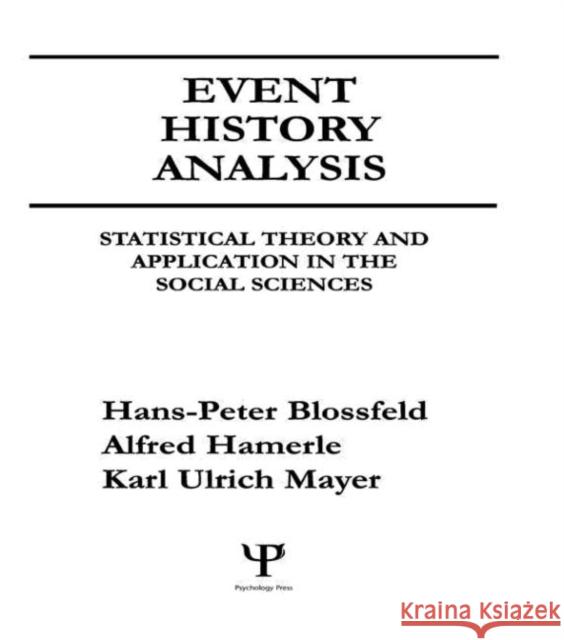Event History Analysis : Statistical theory and Application in the Social Sciences » książka
Event History Analysis : Statistical theory and Application in the Social Sciences
ISBN-13: 9780805801262 / Angielski / Twarda / 1988 / 298 str.
Event History Analysis : Statistical theory and Application in the Social Sciences
ISBN-13: 9780805801262 / Angielski / Twarda / 1988 / 298 str.
(netto: 419,76 VAT: 5%)
Najniższa cena z 30 dni: 435,36
ok. 16-18 dni roboczych.
Darmowa dostawa!
Serving as both a student textbook and a professional reference/handbook, this volume explores the statistical methods of examining time intervals between successive state transitions or events. Examples include: survival rates of patients in medical studies, unemployment periods in economic studies, or the period of time it takes a criminal to break the law after his release in a criminological study. The authors illustrate the entire research path required in the application of event-history analysis, from the initial problems of recording event-oriented data to the specific questions of data organization, to the concrete application of available program packages and the interpretation of the obtained results.Event History Analysis: * makes didactically accessible the inclusion of covariates in semi-parametric and parametric regression models based upon concrete examples * presents the unabbreviated close relationship underlying statistical theory * details parameter-free methods of analysis of event-history data and the possibilities of their graphical presentation * discusses specific problems of multi-state and multi-episode models * introduces time-varying covariates and the question of unobserved population heterogeneity * demonstrates, through examples, how to implement hypotheses tests and how to choose the right model.
Serving as both a student textbook and a professional reference/handbook, this volume explores the statistical methods of examining time intervals between successive state transitions or events. Examples include: survival rates of patients in medical studies, unemployment periods in economic studies, or the period of time it takes a criminal to break the law after his release in a criminological study. The authors illustrate the entire research path required in the application of event-history analysis, from the initial problems of recording event-oriented data to the specific questions of data organization, to the concrete application of available program packages and the interpretation of the obtained results.
Event History Analysis:
* makes didactically accessible the inclusion of covariates in semi-parametric and parametric regression models based upon concrete examples
* presents the unabbreviated close relationship underlying statistical theory
* details parameter-free methods of analysis of event-history data and the possibilities of their graphical presentation
* discusses specific problems of multi-state and multi-episode models
* introduces time-varying covariates and the question of unobserved population heterogeneity
* demonstrates, through examples, how to implement hypotheses tests and how to choose the right model.











